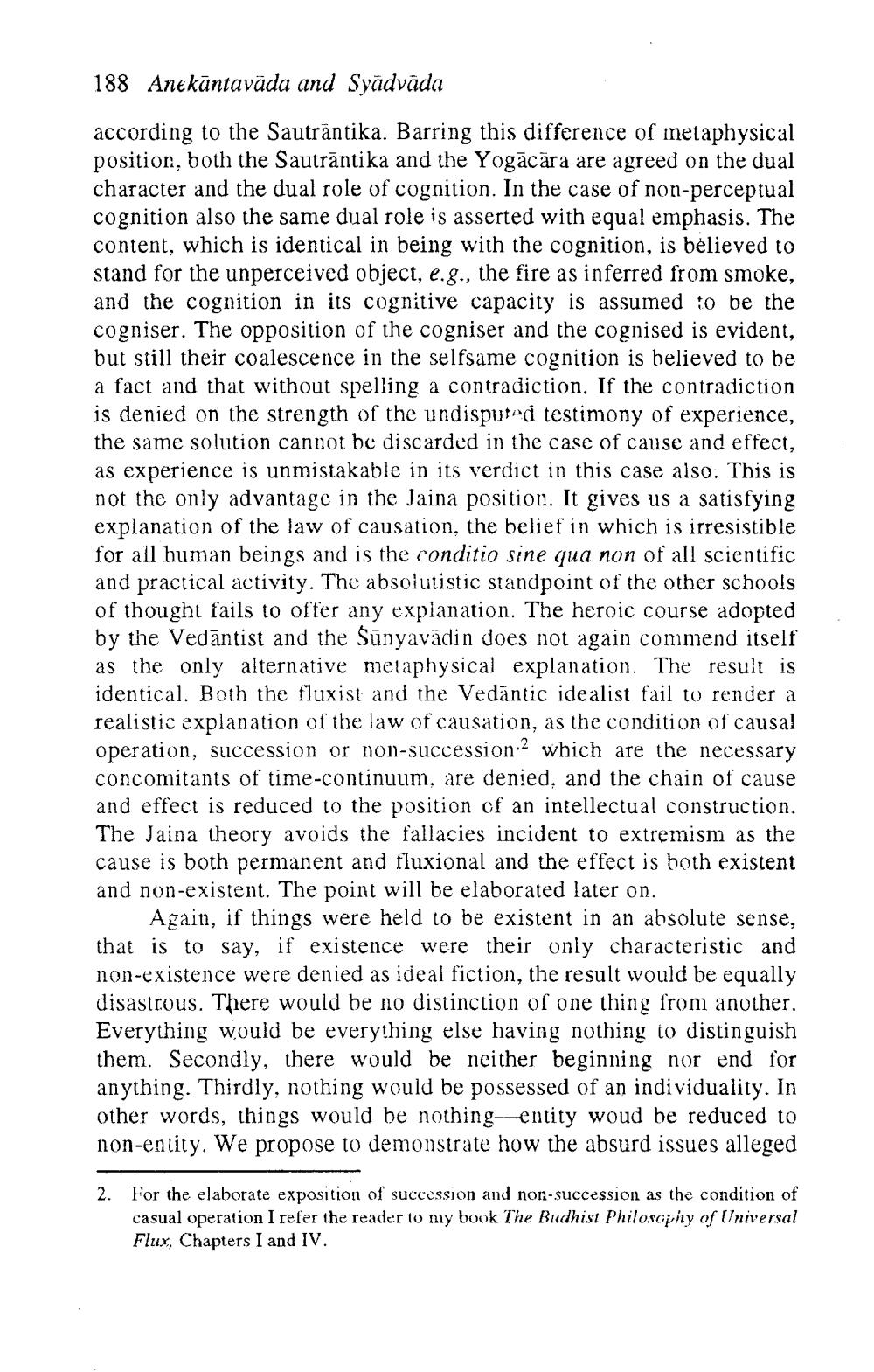________________
188 Anekāntavāda and Syädvāda
according to the Sautrāntika. Barring this difference of metaphysical position, both the Sautrāntika and the Yogācāra are agreed on the dual character and the dual role of cognition. In the case of non-perceptual cognition also the same dual role is asserted with equal emphasis. The content, which is identical in being with the cognition, is believed to stand for the unperceived object, e.g., the fire as inferred from smoke, and the cognition in its cognitive capacity is assumed to be the cogniser. The opposition of the cogniser and the cognised is evident, but still their coalescence in the selfsame cognition is believed to be a fact and that without spelling a contradiction. If the contradiction is denied on the strength of the undisputadi testimony of experience, the same solution cannot be discarded in the case of cause and effect, as experience is unmistakable in its verdict in this case also. This is not the only advantage in the Jaina position. It gives us a satisfying explanation of the law of causation, the belief in which is irresistible for all human beings and is the conditio sine qua non of all scientific and practical activity. The absolutistic standpoint of the other schools of thought fails to offer any explanation. The heroic course adopted by the Vedāntist and the Sünyavādin does not again commend itself as the only alternative metaphysical explanation. The result is identical. Both the fluxist and the Vedāntic idealist fail to render a realistic explanation of the law of causation, as the condition of causal operation, succession or non-succession which are the necessary concomitants of time-continuum, are denied, and the chain of cause and effect is reduced to the position of an intellectual construction. The Jaina theory avoids the fallacies incident to extremism as the cause is both permanent and fluxional and the effect is both existent and non-existent. The point will be elaborated later on.
Again, if things were held to be existent in an absolute sense, that is to say, if existence were their only characteristic and non-existence were denied as ideal fiction, the result would be equally disastrous. There would be no distinction of one thing from another. Everything would be everything else having nothing to distinguish them. Secondly, there would be neither beginning nor end for anything. Thirdly, nothing would be possessed of an individuality. In other words, things would be nothing-entity woud be reduced to non-entity. We propose to demonstrate how the absurd issues alleged
2. For the elaborate exposition of succession and non-succession as the condition of
casual operation I refer the reader to my book The Budhist Philosophy of Universal Flux, Chapters I and IV.




